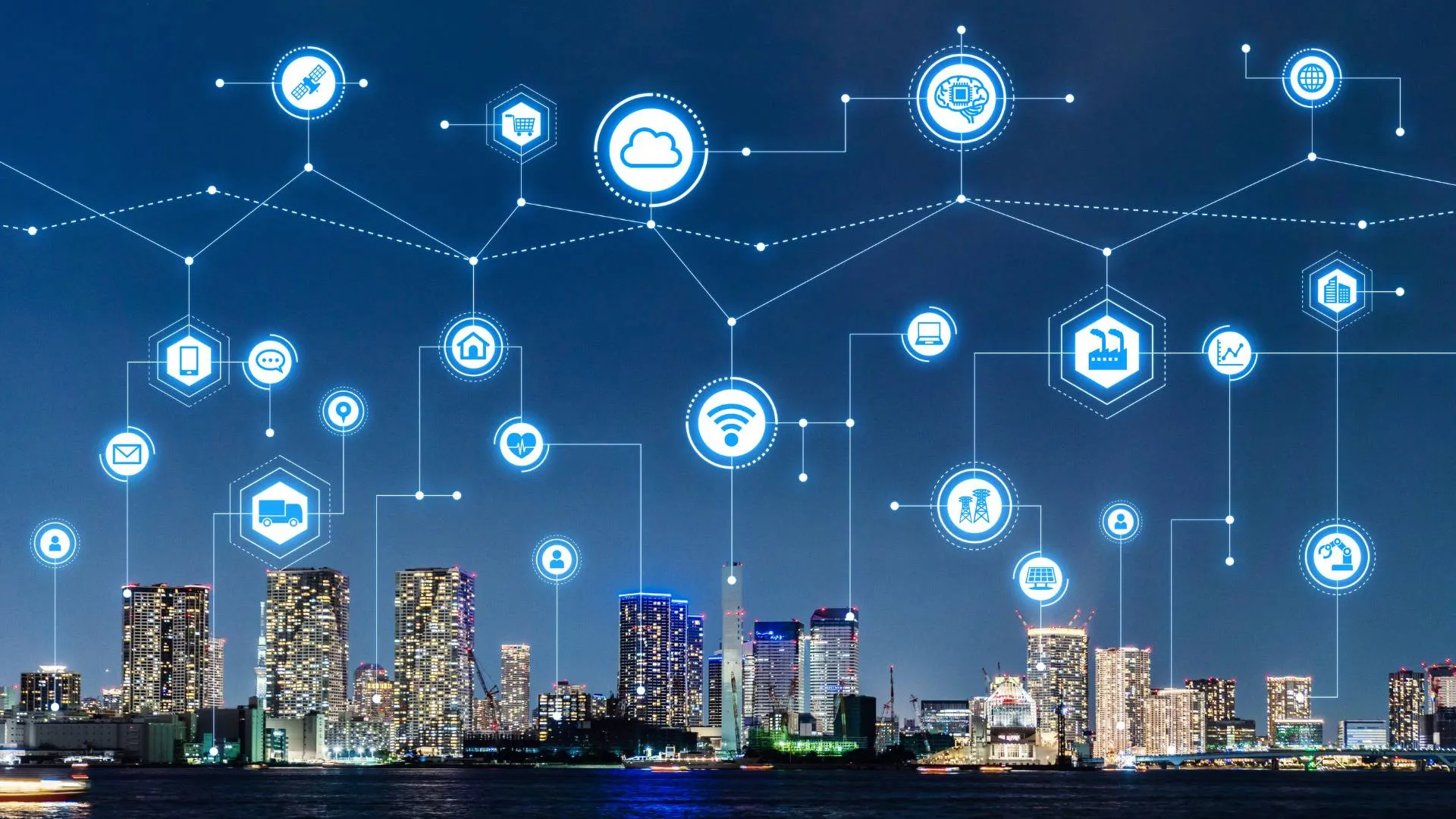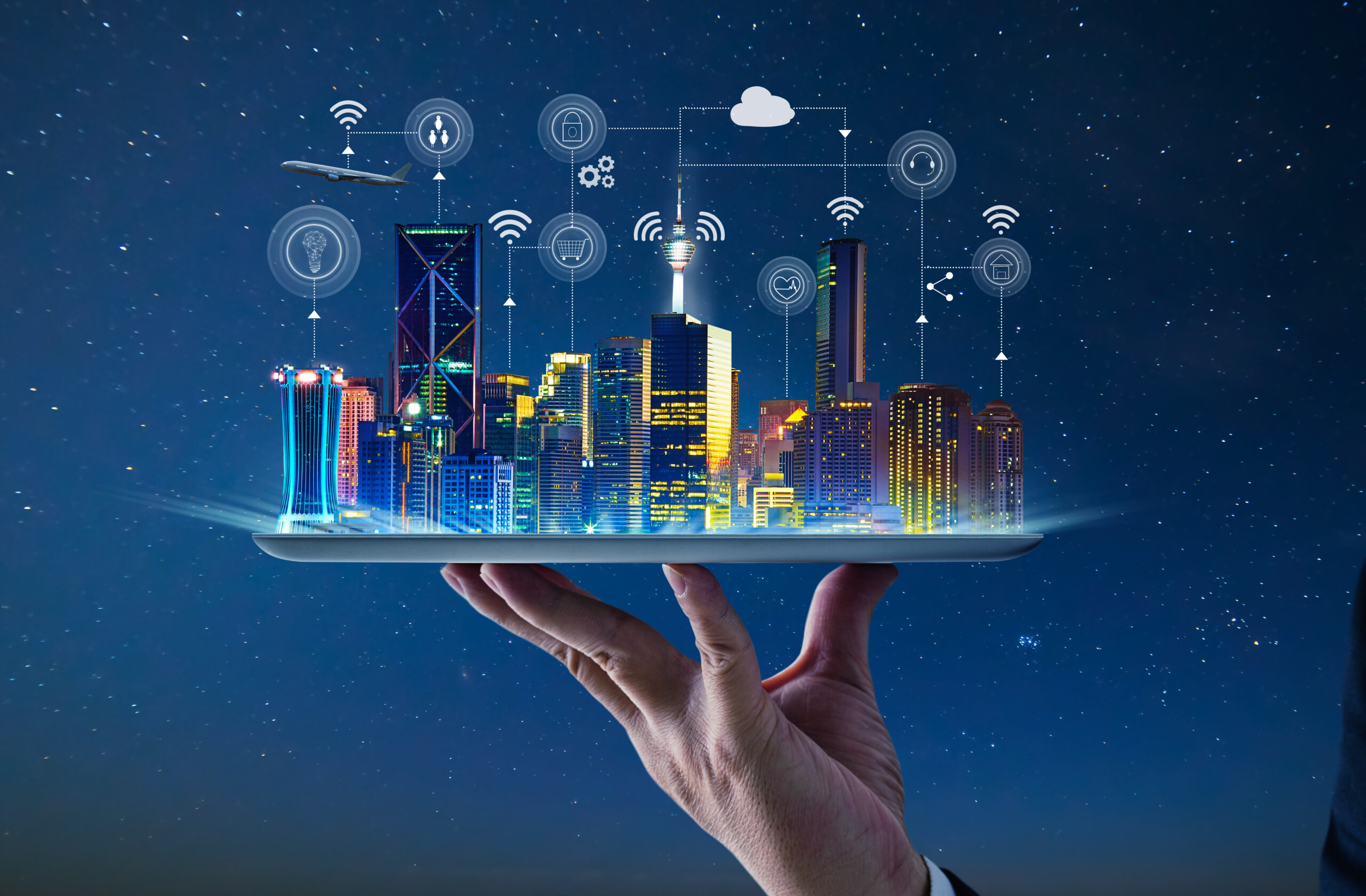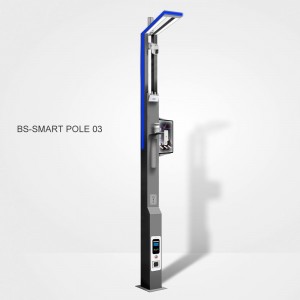Build up a smarty world based on smart cities IoT
A smart city login is a digitally-enabled urban environment that connects innovation with daily services, transforming urban life through advanced digital technologies. By gathering data from citizens, intelligent devices, infrastructure, and surveillance, smart community optimize transportation, energy, water systems, waste management, public safety, and community resources. These IoT solutions for smart cities are characterized by a forward-thinking approach, fostering collaboration between government, businesses, and residents to drive efficiency and sustainability. Significant investment was made all over the world in intelligent surveillance, eco-friendly transit solutions, and energy-efficient outdoor lighting. By adopting dynamic governance and data sharing, smart cities redefine modern living for a smarter, greener future.
The primary objective of a smart city is to enhance urban operations, stimulate economic expansion and elevate the quality of life for residents through the application of intelligent technologies and data analytics. The value proposition is not simply the quantity of technology available, but rather how this technology is deployed.
smart city features
A city’s “intelligence” is typically evaluated based on a set of characteristics that reflect its ability to use technology, data, and connectivity to improve the quality of life for its residents, enhance sustainability, and optimize urban services. Here are the key characteristics and the reasons why they are important:
1. Digital Infrastructure
A robust digital smart infrastructure, including high-speed internet, 5G networks, and IoT (Internet of Things) connectivity, is essential for enabling smart city applications and services. It ensures that data can be collected, transmitted, and analyzed in real-time, supporting everything from smart traffic management to remote healthcare.
2. Data Collection and Analysis
Smart cities IoT rely on data to make informed decisions and optimize services. Sensors, cameras, and other data collection devices gather information on traffic, air quality, energy usage, and more. Advanced analytics and artificial intelligence are used to process this data through citytech wifi, providing insights that can lead to more efficient and effective urban management.
3. Efficient Transportation Systems
Smart transportation systems, including intelligent traffic management, public transit optimization, and smart parking solutions, improve mobility and reduce congestion. They can also enhance safety and reduce emissions, contributing to a more livable and sustainable city.
4. Smart Governance
Smart governance involves the use of technology to improve the efficiency and transparency of city administration through smart city connect. This includes online platforms for citizen engagement, digital services for government operations, and data-driven decision-making processes. It helps build trust between the government and its citizens and ensures that city services are more responsive to community needs.
5. Economic Development
Smart cities IoT often foster economic growth by attracting businesses and investments. They provide a supportive environment for innovation and entrepreneurship, with access to advanced technology and a skilled workforce. This can lead to job creation and a higher standard of living for residents.
6. Quality of Life
Enhancing the quality of life for smart community is a core goal of smart cities. This includes improving public safety, healthcare, education, and recreational facilities. Smart technologies can make these services more accessible and efficient, leading to a better overall experience for residents.
7. Social Inclusion
Ensuring that all residents, regardless of their socioeconomic status, have access to smart city benefits is crucial. This includes providing affordable internet access, digital literacy programs, and inclusive urban planning. Social inclusion helps bridge the digital divide and ensures that the benefits of a smart city technologies are shared equitably.
8. Healthcare Services
Smart healthcare solutions, and IoT solutions for smart cities such as telemedicine, remote patient monitoring, and smart hospitals, can improve access to healthcare and the quality of care. These technologies can also help manage healthcare resources more efficiently, reducing costs and wait times.
9. Resilience and Disaster Management
Smart cities IoT are better equipped to handle natural disasters and other emergencies. They use real-time data and advanced analytics to predict and respond to crises, ensuring the safety and well-being of residents. Smart infrastructure can also help in rapid recovery and rebuilding efforts.
10. Cultural and Recreational Facilities
Smart cities enhance cultural and recreational experiences through technology. This includes smart parks with interactive features, cultural events promoted through digital platforms, and museums with augmented reality exhibits. These enhancements can attract more visitors and enrich the community’s cultural life.
Well-being of the smart community residents
The characteristics that determine a city’s smartness are multifaceted and interconnected, each playing a crucial role in creating a more efficient, sustainable, and livable urban smart community. By investing in robust digital infrastructure, leveraging data and analytics, and implementing sustainable energy solutions, cities can optimize their services and reduce their environmental impact. Efficient transportation systems and smart governance enhance the day-to-day lives of residents, while economic development and social inclusion ensure that the benefits of smart city technologies are shared equitably. Public safety, healthcare, education, and community engagement are further improved through the use of advanced technologies, leading to a higher quality of life. Additionally, resilience and disaster management capabilities are strengthened, making cities better prepared for emergencies. Finally, cultural and recreational facilities are enhanced, fostering a vibrant and engaged community. Together, these characteristics not only define a smart city but also contribute to its long-term success and the well-being of its residents.
Post time: Dec-13-2024







